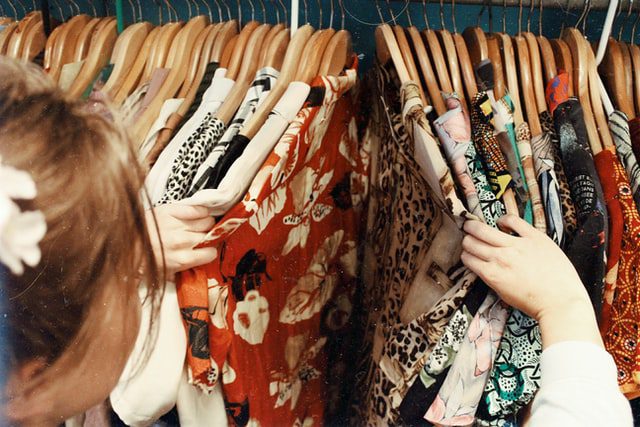- Beko, The UK’s Number 1 best-selling large home appliance brand, has teamed up with a dermatologist, Dr Faheem Latheef, to produce a new report that urges Brits to wash new clothing, explaining the dangerous skin implications that can be caused by germs on new, unwashed garments.
- Nearly half of Brits (44.7%) don’t wash brand new clothes before wearing them.
- Over 20% of people (22%) have worn an item and returned it unwashed, with 73% of these people having done it more than once or regularly.
Britain is a nation of shopaholics, with consumers spending over £62 billion pounds a year[1] on clothing and footwear. In addition to this, almost one in five (19%) people spend over £250 a month on new clothes.
But, when we’re out shopping for our next new piece for our wardrobe, do we really think about who has touched or tried on the clothes before we purchase? Or, if there’s anything in the fabric that could potentially affect our skin? Probably not.
A new study by Beko[i], the UK’s number one best-selling large home appliance brand, has revealed that almost half (44.7%) of Brits don’t wash new clothes before wearing them. The study also revealed that those aged 45 -55 were least likely to wash new items beforehand. Expert and award-winning dermatologist, Dr Faheem Latheef[2] warns of the risks this poses to our skin and health.
Despite the rise and popularity of online shopping, a large proportion of shoppers are still hitting the high street, with 70% of those surveyed purchasing their new clothes in-store.
As such, it’s important to understand the risks posed when shopping in person, along with the easy steps we can take to ensure our new purchases are clean and hygienic before wear.
According to Beko’s study[3], over 20% of people (22%) have worn an item and returned it unwashed, with those living in South East England being most likely to wear and return. Such shocking information reveals the importance of washing new clothes before wearing. But what kind of thing can be found on our newly bought clothes?
Germs that can live on our clothes
Although germs picked up on new clothes are often harmless and don’t penetrate the skin, some can cause infection – particularly in individuals that have an impaired immune system.
Different kinds of microbes will survive in clothing for varying amounts of time and it’s difficult to know if people or surfaces you encounter are affected.
Examples of microbes that can live on new clothing include the following:
- Bacteria – Staphylococcus (staph) can cause infection and is more likely to impact those with eczema and cause flare-ups
- Viruses – While Coronavirus has been shown to be able to survive on fabric for only a couple of hours, other viruses, such as Norovirus (i.e., vomiting bug), is more likely to be spread through contaminated clothing. Verrucae or warts are also caused by a virus, often HPV virus, that can spread through shared contact, however this is more unlikely
- Fungus – Fungi are a very common cause of skin rashes and itching depending on which part of the body they affect. These can spread easily and, in susceptible people, can be very troublesome and recurrent.
Other things that can affect your skin if you don’t wash your new clothes before wearing them
Clothing Dyes – In addition to germs, new clothing can also have excess dyes on them. These dyes can bleed out of the clothing as you sweat onto your skin and can sometimes cause allergic reactions.
Chemical Irritants – Clothing is often treated with stain repellents, colour-fasteners, anti-wrinkle agents, softness-enhancers, and any number of other chemical treatments. These chemicals can cause contact dermatitis or itchy painful rashes.
The laundry experts at Beko said: “We all want to keep ourselves and our families as healthy as we can and reduce the spread of germs and allergens.
“Washing your laundry at high temperatures (above 56°C) can help eliminate bacteria and viruses. Look out for Anti-Allergy programmes and the HygieneTherapy programme on some Beko washing machines and washer dryers which provide an even more hygienic wash, killing up to 99% of bacteria and allergens. If you are worried about washing new clothing, look for a wash programme that will deliver a kinder wash for your garments, such as Beko’s AquaTech, which replaces harsh drum movements to deliver 50% faster, 50% more gentle washes.”
Commenting on the research, Expert Dermatologist, Dr. Faheem Latheef said:
“Due to the effect of the pandemic people have become increasingly conscious of the risks posed by germs in the environment. However, one consideration that is often neglected is the possibility of germs being spread through items of clothing.
“Although mostly harmless, germs can easily spread if items of clothing are used by more than one person. The main microorganisms we are likely to be exposed to are bacteria, viruses, and fungus (including yeast and mould!).
“Washing clothes, even if they are new, is highly recommended as people may have worn and returned items or tried them in the store. Although normal washing of clothes will reduce the risk of germs being transmitted, in certain situations clothes may need to be washed at higher-than-normal temperatures. I would also recommend washing all, new dark clothing and bed linens at least twice before use and avoiding fabrics that fade.”
For further information on the reasons why we should be washing new clothes and advice on how to hygienically wash, please visit https://www.beko.co.uk/lifestyle/why-you-should-wash-before-you-wear
Help keep news FREE for our readers
Supporting your local community newspaper/online news outlet is crucial now more than ever. If you believe in independent journalism, then consider making a valuable contribution by making a one-time or monthly donation. We operate in rural areas where providing unbiased news can be challenging. Read More About Supporting The West Wales Chronicle























